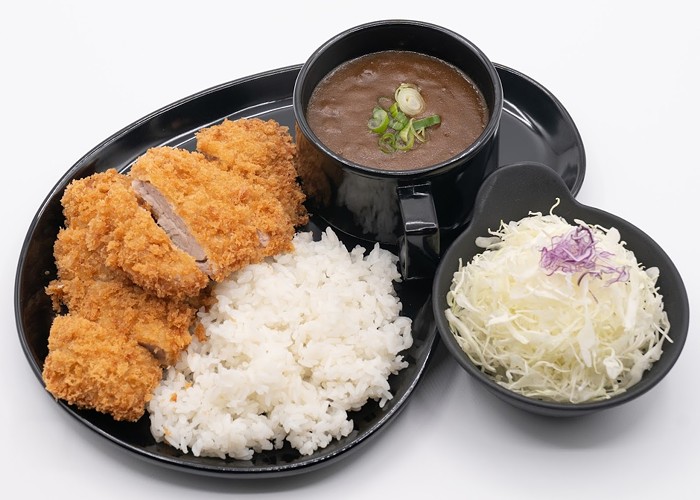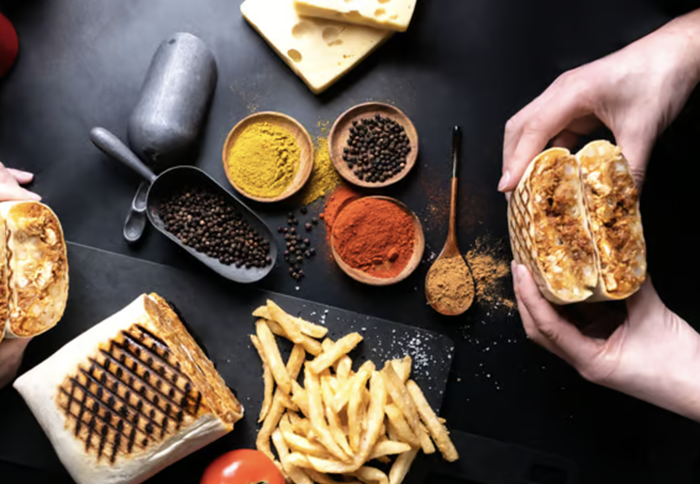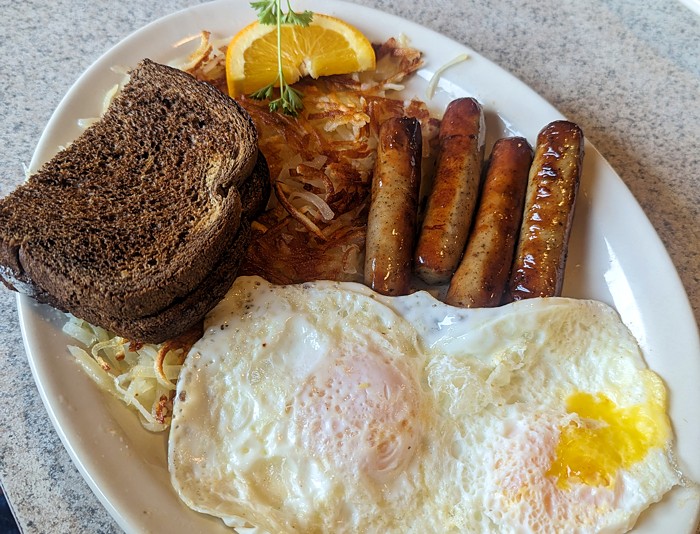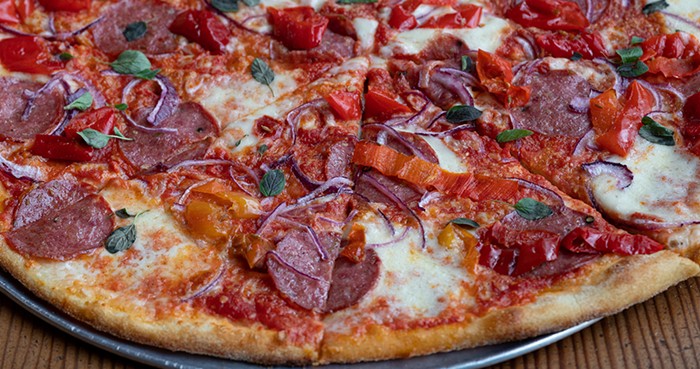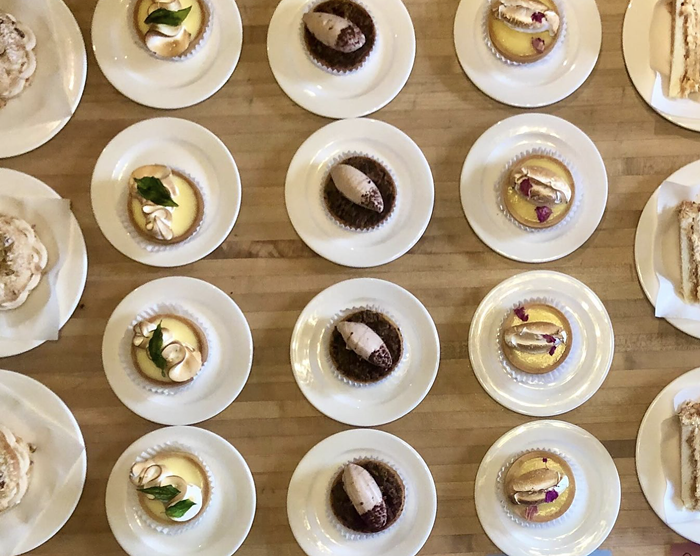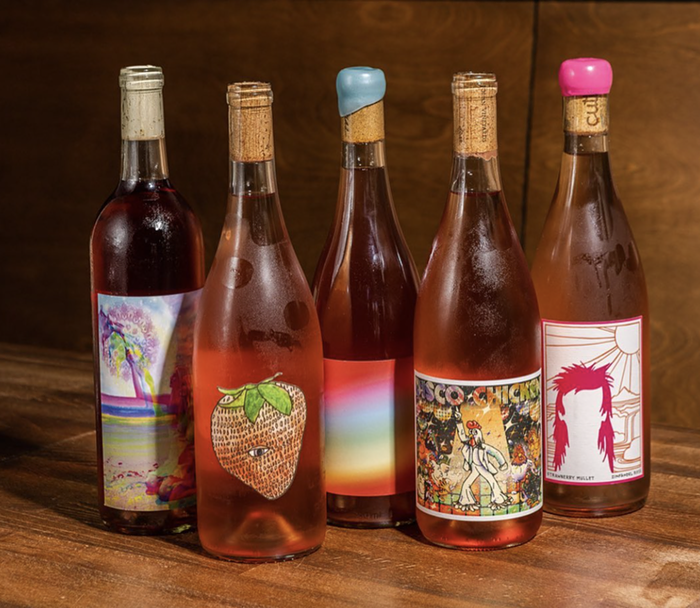Danny Westneat writes that the Turf, a venerable downtown diner that is dear to my heart, is finished. Why? Because most of the people who went there were poor, and the poor people are getting so poor, they can't afford to go there anymore.
Plus, the Turf was a first-of-the-month bar, a place where people went to get their government relief checks cashed and buy themselves a beer and a grilled-cheese sandwich. But those government relief checks are evaporating:
"I think it's going to get worse from here," Rosas said the other day. "There's no money. These people have no money anymore."
...out will be the Turf name. In will be Ludi's, after Rosas' daughter Ludivina. Also out, eventually, will be the pulse of the place — the kiosk in the back that long ago became downtown's unofficial community center to the low-income. Here you could cash checks, order money grams, pay utility bills, buy stamps, gossip and, yes, gamble away what little you had left on 25-cent pull tabs.
Rosas said he's making the changes because the entire "first-of-the month" culture is, for better or worse, ending.
Part of it is technological. Social Security and welfare are doing away with paper checks, switching to direct deposit. So there's no longer as much need to go somewhere like the Turf to convert checks to cash.
But part of it is financial, or, depending on your point of view, moral. The bottom of society is being cut off from government help. On Oct. 31, for instance, the state of Washington ended its general-assistance cash-payments program.

- David Belisle
- The Turf Lounge in 2001.
Some people out there will get sanctimonious and derisive about the closing of the Turf and people using their welfare money to buy beer and grilled-cheese sandwiches and pull tabs. (They're already getting sanctimonious and derisive in the Times comments thread.) But let me tell you what else they were buying—some comfort, some human connection, some feeling of society. And sometimes a little human connection is the only thing that keeps a person—lonely and poor or just plain lonely—from going around the bend.
The first time I went to the Turf was back in the late 1990s. It was the old one on First Avenue, closer to the Pike Place Market, back when the Mirror Tavern was still across the street and drug people called that strip, where they went to score, "the Blade."
I was a little bewildered when I first walked in—I'd never seen any place quite like it. (I think I was underage.) A vegetable-monger who worked at the Pike Place Market had taken me there for a roommate interview.
See, I wanted to move into the toolshed behind a house on Beacon Hill. A friend of mine owned the house but lived with two or three other people, all of whom had agreed on veto power over roommate choices. Fair enough. Everybody agreed I could live in the toolshed, except one person—the veggie-monger wanted to meet me for a drink before he gave his thumbs-up. So we went to the Turf.
The place was narrow and smoky and looked like something from a 1960s movie—Five Easy Pieces or Sometimes a Great Notion. The atmosphere was both depressed and juiced, like a cypress swamp with an electric current running through the water. The crowd was more wizened than what I was used to. Some were silent and some were talking and laughing softly. The round woman behind the bar didn't ask for my I.D. when I nervously approached. She just gave me a big smile, called me "honey," and (if I remember correctly) reached across the counter to pat my cheek. My bartender-grandma. I followed the veggie-monger's lead and ordered a can of beer and a Crown Royal neat.
As he and I sat and talked—the conversation was boring and inconsequential—I noticed the Turf had a repeating, bifurcated parade. Every twenty minutes or so, a few guys would come through, selling stuff: CDs, car stereos, an old Native American guy selling what he said were eagle feathers. Then, a few minutes later, two uniformed cops would walk through, look around lazily, and leave. It was like they were on a pre-set, rotational schedule. Nobody paid any mind to the peddlers or to the cops.
The veggie-monger and I finished our conversation* and left. But I kept coming back, sometimes to sit and read (it was pretty well-lit—it's hard to find a good reading bar), or sometimes just to sit. It seemed like the kind of place where, if your money was green and you didn't punch anybody, you could do whatever you wanted. You could read a book, pick your nose, strike up a conversation with a stranger, holler at the television, stare into space, eat four baskets of french fries soaked in two bottles of ketchup—whatever you wanted to do, whoever you were, however you wanted to be. Just as long as you kept it peaceful.
There was a comfort, an almost Christ-like acceptance of all comers, that I've never felt in any other diner or bar. (I have heard stories from people who have felt distinctly unwelcome there, including the time three friends walked in and the bartender greeted them by glaring and loudly slapping a rubber rat on the bar. I believe those stories. I just never experienced that kind of thing myself.**)
It was also an unusually integrated place—racially, economically, age-wise. There were old white people and young Asian people and middle-aged black people. There were folks on their way to work, folks just getting off work, old ladies in their bathrobes, guys in track suits who wore sunglasses indoors, veggie-mongers from the Pike Place Market, dorks like me.
I went to the Turf alone—for me, it was a little downtown hideaway. But just a few weeks ago, I wound up there with another person, a guy named Lee I was interviewing for this story. It was the first time I'd been to the Turf with somebody since the first time I'd been to the Turf. Sounds like it's the last time, too.
It makes sense, in its way, that I'd bookend my first and final experiences at the Turf with another person. Some people went to the Turf to be together, and some went to be alone together. The Turf is—now was—a lot more than a place to cash your relief check and buy cheap food and booze. It was a haven.
As government services are being gutted on all sides, the official havens, the shelters and social services, are disappearing. Now the unofficial havens are disappearing, too.
Where will all those people go?
*He vetoed my moving in, by the way, for reasons that he never fully explained. At the time, my friend said he was just a capricious guy, a heavy drinker who made all kinds of weird, shitty decisions that nobody could understand. (My friend also said that the guy came from an upper-class family but had a kind of fetish for working-class people, and that maybe I came off as too bookish, naive, and square.) But over the years, I've come to think he saw the youthful idiocy of my proposing to live in a toolshed. Maybe he just knew that it was a dumb idea. At the time I felt a little hurt, but now I realize he was probably doing me a favor.
** The Turf has also inspired some embarrassing writing over the years: writers who overemphasize its seediness so they can indulge in faux-Beat rhapsodies or writers who overdramatized how "intimidating" it was. I hope these memories do not contribute to that canon.
